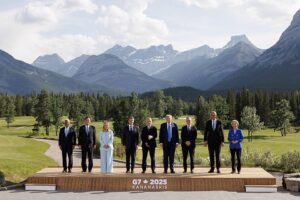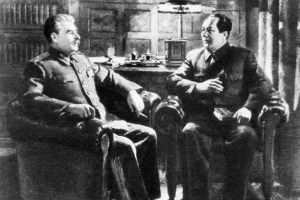
The chancellor of Argentina, Diana Mondino, is expected to arrive in Brazil this Sunday (14) on an official visit to the country at a time when President Javier Milei’s foreign policy is marked by the distancing of regional interests in Latin America and the preference for closer ties with countries like the United States and Israel.
Furthermore, the minister’s visit takes place two days after Milei’s trip to the USA to meet with conservative billionaire Elon Musk, owner of the social network X and the company Tesla. After the meeting, the Argentine president said he would support Musk in the businessman’s dispute against the Brazilian Judiciary system. Last week, Musk joined the Federal Supreme Court (STF) investigation into the activities of digital militias, after attacking Minister Alexandre de Moraes.
Milei’s support for the billionaire was announced by the Argentine Presidency spokesman, Manuel Adorni, although he did not specify what actions Milei would take.
“It doesn’t sound like the best way for the chancellor’s visit to Brazil”, says Matias Capeluto, one of the coordinators of the Puebla Group, a progressive forum in Latin America formed by political representatives and academics who think about regional integration.
“[Principalmente] after the conflict that occurred this week between the Brazilian government and the social network actions must adapt to this”, he told Brazil in fact.
For him, Milei “is a president who does not have an agenda of regional integration, but an agenda of submission to the USA and Israel.” “He comes to break with the two main commercial partners [da Argentina] which are Brazil, firstly, and China, secondly, whom Milei also tired of offending, both the country and its society”.
The researcher also points to the “dengue epidemic we are experiencing in this region” as an example of lack of cooperation. “We would like there to be coordination of health systems, which there is not, and for us to have greater investments from both countries to increase and improve our border crossings and improve our trade.”
Bad relations between Brazil and Argentina
In 2023, bilateral trade between Argentina and Brazil totaled US$28.7 billion. Brazilian exports registered US$16.7 billion in 2023, while imports of Argentine origin accumulated US$11.9 billion. Argentina is the third main destination for Brazilian exports and the fourth source of imports.
“Our biggest trading partner requires greater attention. We would like Milei to apologize to Lula for everything he said and have a normal relationship politically and commercially. Mandino’s job now in Brazil will be to deal with the solution of these problems. But I don’t see , at least politically, that things will improve”, analyzes Capeluto.
The executive director of the Puebla Group points out that Milei’s foreign policy is marked by the break with the country’s diplomatic and democratic traditions in relation to historical positions, such as the defense of the sovereignty of the Falklands, as well as the defense and protection of human rights in Latin America.
While he made a point of visiting Israel in the midst of the biggest massacre carried out by Benjamin Netanyahu’s government against the Palestinian population, Milei’s position in relation to Brazil and Latin America has been marked by absence and attacks since the election campaign.
In the most recent episode, Colombia expelled Argentine diplomats after Milei referred to the country’s president, Gustavo Petro, as a “terrorist murderer”. Relations between the countries were resumed at the beginning of the month, after the intervention of Chancellor Diana Mondino, who offered to visit the country, on a date that has not yet been defined. Mondino’s role in the region has mainly been to appease regional hostilities provoked by the Argentine president.
“She is forced every day to explain that President Milei’s declaration is not the declaration of the Argentine State, she is constantly calling offended ministers and countries, visiting countries where Milei is absent, breaking with another historical tradition of our country, which is integration regional”, points out Capeluto.
Abandonment of regional blocks
Next Tuesday (16), the presidents of Latin America and the Caribbean will discuss the main diplomatic incident in the region, the invasion of the Mexican embassy in Quito by the government of Ecuador. The Community of Latin American and Caribbean States (Celac), a regional bloc made up of 33 countries, may decide to sanction Ecuador for violating the diplomatic space and political asylum granted by Mexico to former vice-president Jorge Glas.
Celac, as well as Unasur and Mercosur, are spaces from which the Argentine government, under Milei’s command, has been absent. In addition to the crisis in Ecuador, the Venezuelan presidential elections, the conflict over Essequibo between Venezuela and Guyana are regional issues that do not have Argentina’s support for resolution.
“With the different themes that occupy our agenda today, Argentina is not only outside the discussion and does not support Lula’s leadership, but also, there is a decision that is not expressed, because the president never said it like that, but is implicit and very clear: Argentina does not want to follow any process of regional union and integration, nor even seek common positions on our continent to insert ourselves into the global discussion”.
Editing: Lucas Estanislau

Source: www.brasildefato.com.br

